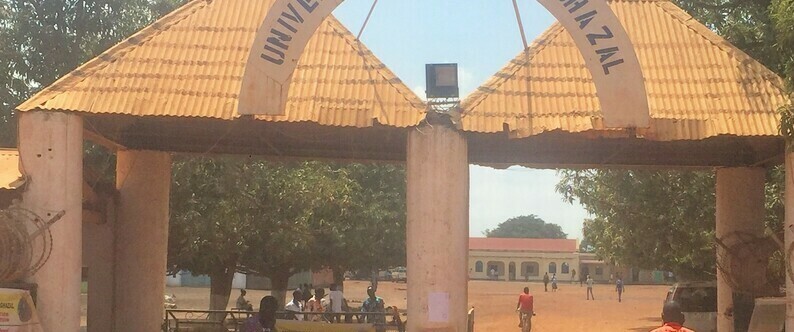Despite receiving one month’s pay, workers and teaching staff at the University of Bahr el Ghazal in Western Bahr el Ghazal State said they are determined to persist with their ongoing strike until they receive payment for the full five months owed to them.
The decision to strike was made during a workers’ union general assembly meeting last Monday. The workers are demanding payment for five months of salaries, including arrears, medical care, and ticket reimbursements.
Although workers began receiving one month’s salary last Thursday, Emmanuel Bol Maker, the University’s secretary general for the workers’ union, emphasized in an interview with Radio Tamazuj this morning that this amount does not adequately cover their expenses over the past five months.
Maker pointed out that the received payment falls far short of meeting their monthly expenditures, including loans they took out from local businesses. “The one month that has been received is not enough because, from an economic standpoint, income should equal expenditure. That is why people are paid monthly,” said Maker. “The received income cannot cover the monthly expenditures incurred by the University’s families over the past five months, as they have had to resort to loans and purchase essential items like sugar and food to sustain their households.”
“When these salaries don’t come through, they have to repay the business people from whom they borrowed to purchase essential items, and even the loans they have taken out. However, what they received did not cover even 50 percent of the borrowed amount,” he added.
Maker stated that, as of now, none of the university workers or lecturers have registered their children in schools. “Up to now, none of the University workers or lecturers has registered his or her children at school,” he said.
Maker mentioned that the workers and all teaching staff are demanding 50 percent of their salaries to completely call off the strike. “As a minimum solution, as I mentioned before, we need 50 percent because this amount would at least be equivalent to half of their expenditures. This would allow the University’s families to register their children in schools,” he said. “We have not called off the strike because we are in a dilemma,” he clarified their position.
Barnaba Bech, Secretary for Information and a member of the workers union, expressed his concern about why the government of South Sudan continues to subject its people to working on debt credit. “This one month is not enough, and I am wondering why the government of South Sudan is allowing its workers to work on debt credit. I don’t understand this. Any worker in a country has needs, including sustaining their life, and their salary is what they rely on to meet those needs,” said Bech.
“The workers at the University of Bahr el Ghazal are suffering; if someone is sick with malaria, or a child is sick with malaria, they could die, and it is this country that is responsible for this,” he said. “Since the workers declared the strike, we have been consistently stating our demand for our full five months’ payment.”
Bech shared that, “I am wondering about the Minister of Finance because, since we declared the strike, there has been no full response to our demands. The workers have a legitimate concern, as they are simply demanding their rightful pay.”
“Our strike will continue until Thursday, and if there is no positive response by then, we will return to the hall and declare another 21 days. If there is still no response after that period, we will proceed with an open strike,” he added.




